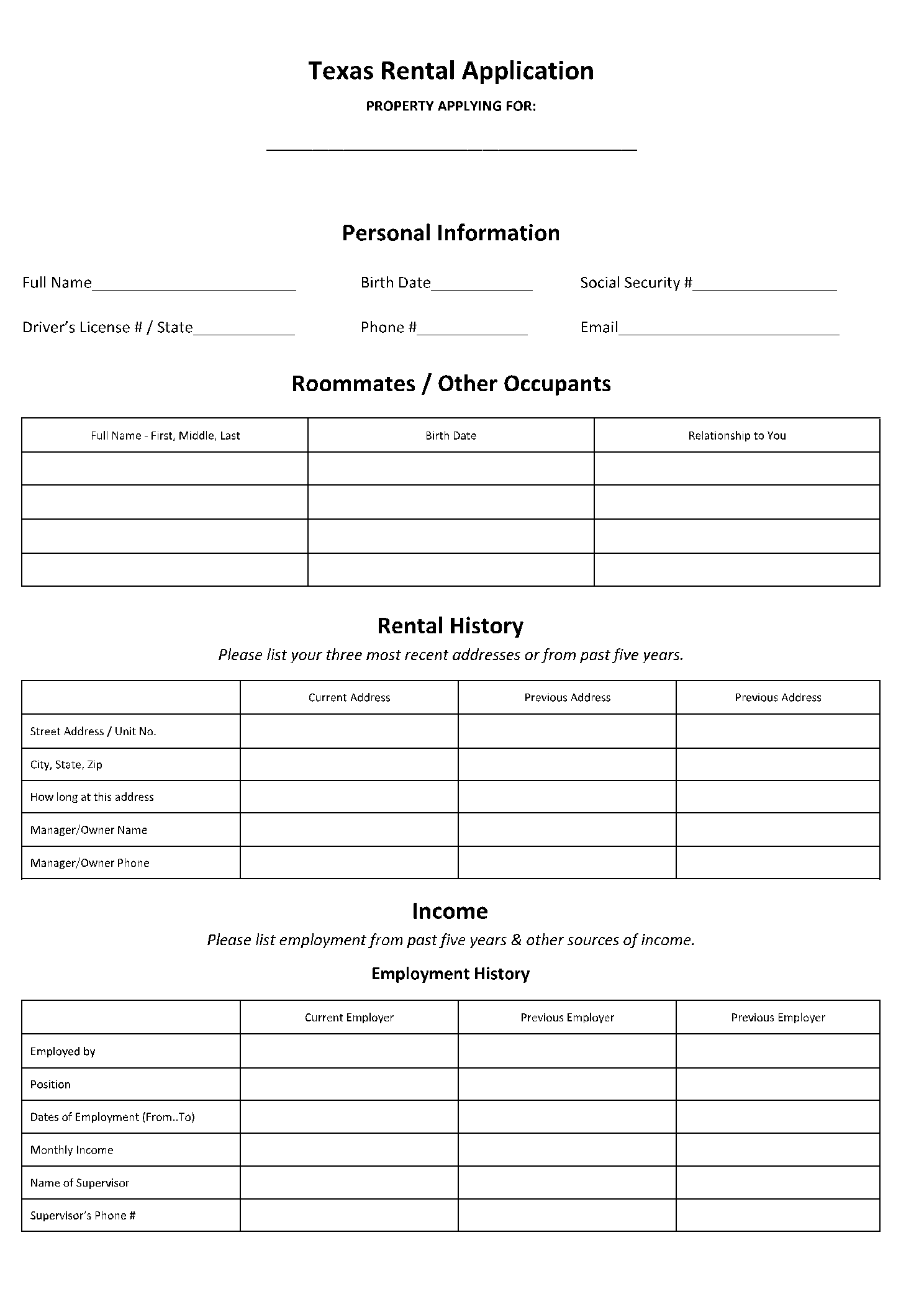Introduction
A texas lease or rental application is a form that is used by Texas landlords to conduct a background search for a potential tenant. The screening is supposed to establish if the tenant can be relied upon in terms of rent payment and paying on time. A standard texas rental application form gives a landlord or property manager an opportunity to identify potential red flags that might impact the tenant/landlord relationship.
Screening
In order to gauge the trustworthiness, reliability, and ability of the tenants to continue honoring their rental obligations, landlords are allowed to objectively dig into the details they feel might guarantee this commitment. In doing so, however, the landlord must at all times ensure that they do not violate the fundamental human rights guaranteed in the constitution. Majorly, for as long as the landlord remains objective and avoids violation of human rights, they may obtain any of the following pieces of information from a potential tenant: Criminal record, credit rating, previous eviction notices if any, involvement in sexual offenses, proof of income and both current as well as previous employers’ contact information.
Texas Rental Application Statistic/Specifics
In the landmark Supreme Court ruling of 2015, it was held that a disparate impact was included in the then fair housing act that was practiced between tenants and landlords in Texas. Accordingly, it was ruled that there be observed unique requirements in all agreements between landlords and potential future tenants within Texas. The screening process thus came up with the following as some of the guiding tenets of future landlord/tenant relationships in Texas.
Landlord
Rejection of Application
It is assumed a sufficient notice of rejection or acceptance, as may be, when the landlord communicates to the tenant either through a phone call or by writing the tenant mail.
Failure to Disclose
Where a tenant willfully gives false or incomplete details regarding his intended tenancy, the landlord reserves the right to reject such an application.
Retaliation
The fair housing act recognizes scenarios where a tenant may require certain repairs be done to the building in six months into his tenancy. Landlords are prohibited from coercion or interference where it involves a person protecting their fundamental rights or where someone is helping the other to guard such a right.
Tenant
Application Fee
While the Texas fair housing act doesn’t impose any application fee, most landlords require that tenants pay the fee so they can use it to conduct the requisite background check on the tenant. In most instances, landlords wouldn’t even consider an application without this fee which ranges between $15 - $30.
Rejection of Application
Where the landlord rejects a rental application for a reason other than the tenant violating the fair housing act provisions, the tenant should be refunded the application fee and any deposit that had been paid.
Timeframe to File Complaint
In the case of alleged discrimination, an applicant has up to 365 calendar days to file a complaint with the Texas Workforce Commission Civil Rights Division.
Investigation Procedure
Upon receipt of a discrimination complaint, the commission shall investigate the case within 100 days. The fair housing act further requires that landlords don’t discriminate where a child under the majority age of 18 lives with the guardian or a designee of the parent or legal guardian.
Conclusion
From the discussion above, it can be fairly argued that the Texas lease application form was designed to enhance the relationship between landlords and tenants by considering issues that often arise between the two parties and enshrining them in the fair housing act. That way, the rights of both the landlord and the tenant are protected and a fair judicial procedure was established to handle potential disagreements between the two parties.
